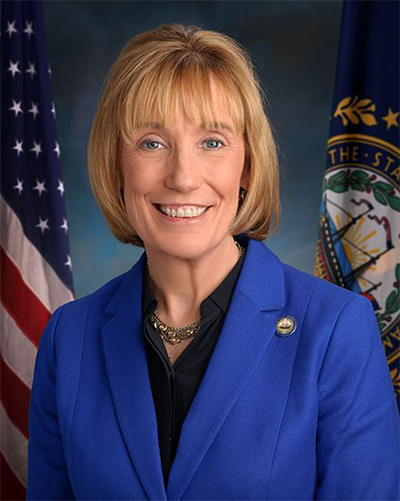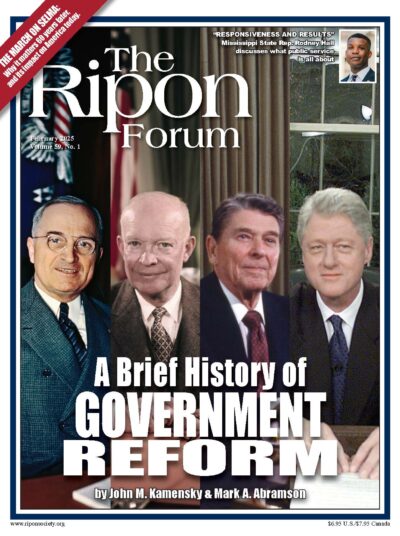
My father – a World War II veteran – instilled in me the understanding that freedom is essential, but it is not inevitable. In our democracy, freedom has been protected and expanded only when enough of us were willing to fight for it: Delegates in a hall in Philadelphia who signed the Declaration of Independence; everyday Americans who fought to rid the world of Hitler’s tyranny; and on March 7, 1965, a band of Civil Rights marchers who braved clouds of tear gas and billy club beatings to cross a bridge in Selma.
What remains most striking to me about Selma’s legacy is how uncertain its outcome was. The ultimate success of the march wasn’t inevitable. The march and the subsequent enactment of voting rights protections were only possible because at every stage people put themselves – their career, their political standing, or even their lives – on the line for the cause of freedom. President Johnson risked losing all of his political capital after winning re-election by endorsing the Voting Rights Act. Northern Democrats and moderate Republicans risked fierce political backlash by coming together to pass it into law.
But no one risked more than the marchers. The marchers kept on going – after the murder of one of their own, through tear gas and attack dogs, and even after they were stopped on that Bloody Sunday. They came back to complete the march in even greater numbers, joined by people from every corner of our country.
Selma teaches us that progress is neither a straight line nor forged by accident. The work to build a more perfect union is an ongoing mission and it is a task that belongs to all of us.

Sixty years later, our democracy again faces challenges to its fundamental promise. I never thought our country would witness an attempt to overturn by force a free and fair election, as we did on January 6. But we did. And the failure to hold those who committed these crimes accountable continues to weaken our beloved country. Surely the Selma marchers did not put their lives on the line to secure the right to vote only for our country to become a place again where the powerful and violent can deny any single American their vote simply because they disagree.
It is precisely because of the difficulties of our present moment that I find myself returning to the lessons of Selma. Selma teaches us that progress is neither a straight line nor forged by accident. The work to build a more perfect union is an ongoing mission and it is a task that belong to all of us. In America, better is always possible – but only if we have the courage to come back and try to cross that bridge no matter how many times it takes.
Dr. King knew this well. At the end of the march, he encouraged his fellow marchers that things would change soon, “How long? Not long, because no lie can live forever,” King told them. “How long? Not long, because the arc of the moral universe is long, but it bends toward justice.”
In today’s polarized political climate rife with bitter partisanship, rising extremism, and unforgiving social media, acts of political courage and conscience – particularly those that are likely to earn the scorn of one’s peers, one’s political party or even one’s President – are not without difficulty or danger. But surely these dangers are easier to bear than billy clubs and tear gas and the cruelty and power of Jim Crow.
Sixty years after Selma, it is again clear that freedom and even American democracy itself are not inevitable, but they remain essential; they are everything. I am hopeful that people from all walks of life will follow the example of those who went before us in Selma and find the courage to stand for freedom, to insist on freedom, to ensure that it rings.
Maggie Hassan represents New Hampshire in the United States Senate.




